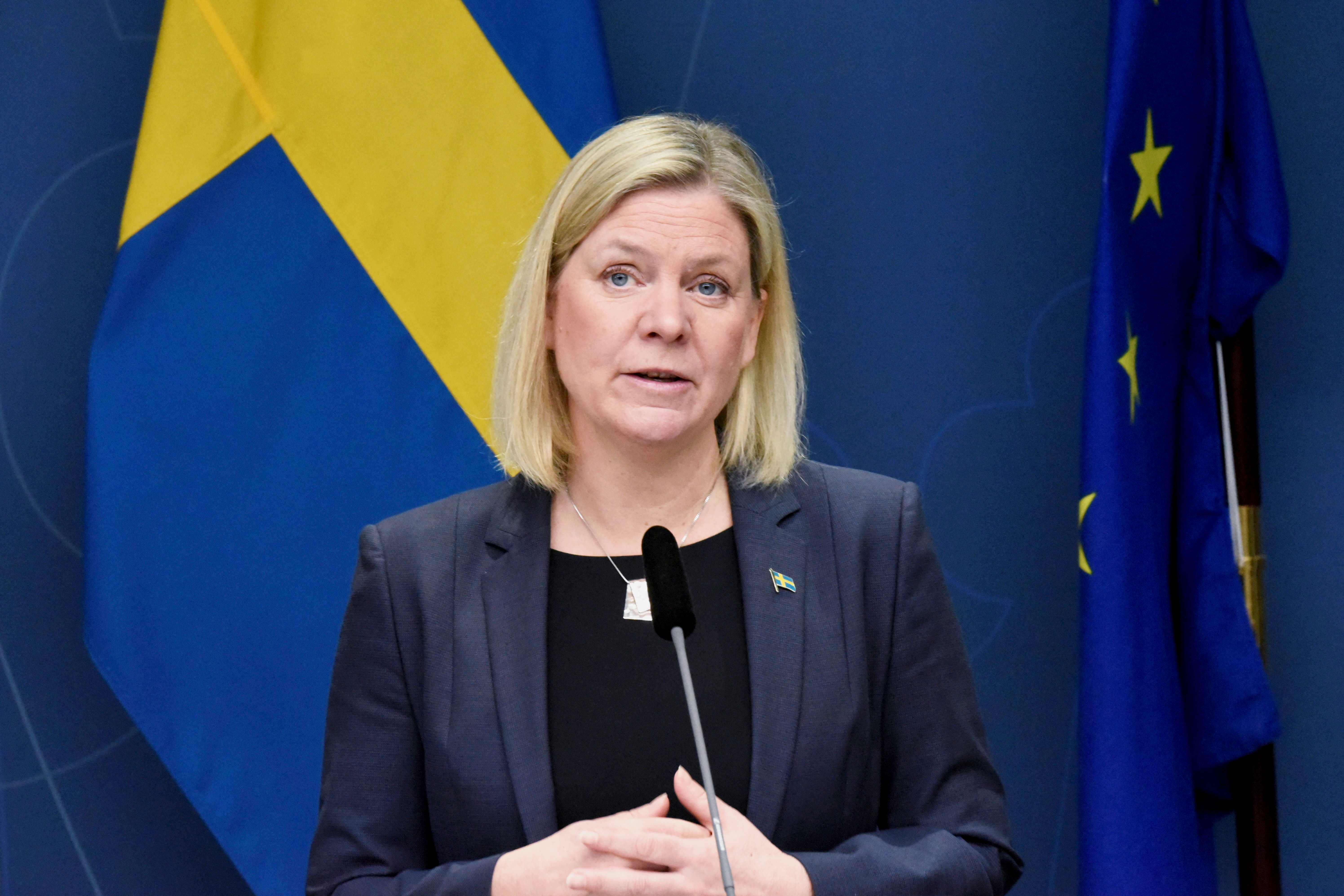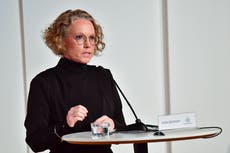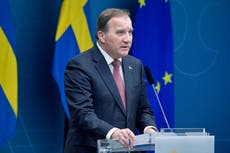Sweden to impose new Covid measures as Omicron strains health system
The measures include a work from home mandate and limit on attendances at large public events

Sweden will introduce more measures to stem a rising number of Covid cases that have placed pressure on the healthcare system, Prime Minister Magdalena Andersson said on Monday.
The Scandinavian country has seen its fastest spread of Covid cases in recent weeks as the Omicron variant has surged nationwide. A record 60,000 cases were detected last week, despite limited testing capabilities.
“The situation has deteriorated, without doubt. The level of infections in Sweden is at a historically high level,” Ms Andersson told a news conference.
“Restrictions are not something we introduce lightly and we are aware that the past two years have been a trying for all of us in Sweden,” she added.
The new measures, set to be introduced on Wednesday, include a work from home mandate, where possible, and a cap on the number of people allowed at large public events.
The restrictions will also see cafes, bars and restaurants hit with an 11pm curfew with guests allowed groups no bigger than eight. Adults are also being asked to limit socialising in indoor settings and universities are being asked to return to distance learning where possible.
The rules are expected to be in place for four weeks but will be evaluated after two weeks.
Still, while infection numbers have soared, the number of Covid patients hospitalized is well below the peaks seen in previous waves where in December 2020 Stockholm warned that 99 per cent of its intensive care beds were full.
Currently more than 1,000 people are being treated in hospital for Covid and roughly 100 of them are in intensive care units.
The strain on healthcare is being exacerbated by the spread of other respiratory viruses as well as staff shortages, the National Board of Health and Welfare said.
Head of the Swedish Public Health Agency Karin Tegmark Wise said: “We are in an extreme situation.”
The health agency said on Monday that the peak of the wave will come later than previously expected and that the Omicron variant made the disease harder to predict. The previous assessment was for a peak in mid-January and then a gradual decline.
Neighbouring Nordic countries such as Denmark and Norway introduced strict Covid restrictions last month as Omicron cases increased in the region. Before Christmas, the Danish government closed many public venues including cinemas, theaters and concert halls while Norway banned the sale of alcohol at licensed premises forcing some bars to shut temporarily.
For most of the pandemic, Sweden stood out among European nations for its comparatively hands-off response. The country never went into a lockdown or closed businesses, relying instead on citizens' sense of civic duty to control infections. Authorities have emphasized individual responsibility instead of government health measures.
Since the start of the pandemic, 15,377 people in Sweden have died from Covid.
Additional reporting by agencies
Join our commenting forum
Join thought-provoking conversations, follow other Independent readers and see their replies
Comments


Bookmark popover
Removed from bookmarks